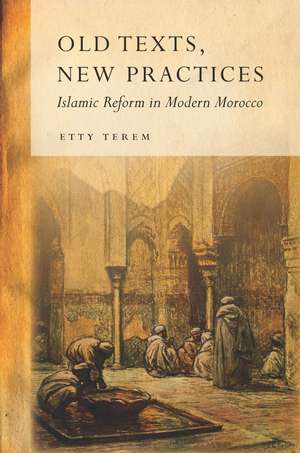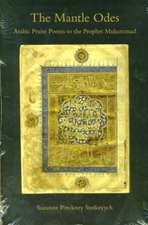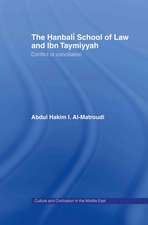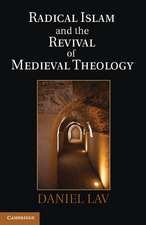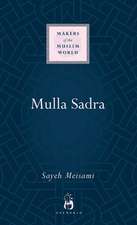Old Texts, New Practices: Islamic Reform in Modern Morocco
Autor Etty Teremen Limba Engleză Hardback – 9 mar 2020
In 1910, al-Mahdi al-Wazzani, a prominent Moroccan Islamic scholar completed his massive compilation of Maliki fatwas. An eleven-volume set, it is the most extensive collection of fatwas written and published in the Arab Middle East during the late nineteenth and early twentieth centuries. Al-Wazzani's legal opinions addressed practical concerns and questions: What are the ethical and legal duties of Muslims residing under European rule? Is emigration from non-Muslim territory an absolute duty? Is it ethical for Muslim merchants to travel to Europe? Is it legal to consume European-manufactured goods? It was his expectation that these fatwas would help the Muslim community navigate the modern world.
In considering al-Wazzani's work, this book explores the creative process of transforming Islamic law to guarantee the survival of a Muslim community in a changing world. It is the first study to treat Islamic revival and reform from discourses informed by the sociolegal concerns that shaped the daily lives of ordinary people. Etty Terem challenges conventional scholarship that presents Islamic tradition as inimical to modernity and, in so doing, provides a new framework for conceptualizing modern Islamic reform. Her innovative and insightful reorientation constructs the origins of modern Islam as firmly rooted in the messy complexity of everyday life.
In considering al-Wazzani's work, this book explores the creative process of transforming Islamic law to guarantee the survival of a Muslim community in a changing world. It is the first study to treat Islamic revival and reform from discourses informed by the sociolegal concerns that shaped the daily lives of ordinary people. Etty Terem challenges conventional scholarship that presents Islamic tradition as inimical to modernity and, in so doing, provides a new framework for conceptualizing modern Islamic reform. Her innovative and insightful reorientation constructs the origins of modern Islam as firmly rooted in the messy complexity of everyday life.
Preț: 445.84 lei
Preț vechi: 550.42 lei
-19% Nou
Puncte Express: 669
Preț estimativ în valută:
85.31€ • 89.31$ • 70.59£
85.31€ • 89.31$ • 70.59£
Carte tipărită la comandă
Livrare economică 05-19 aprilie
Preluare comenzi: 021 569.72.76
Specificații
ISBN-13: 9780804787079
ISBN-10: 0804787077
Pagini: 248
Dimensiuni: 152 x 229 x 20 mm
Greutate: 0.46 kg
Editura: Stanford University Press
Colecția Stanford University Press
ISBN-10: 0804787077
Pagini: 248
Dimensiuni: 152 x 229 x 20 mm
Greutate: 0.46 kg
Editura: Stanford University Press
Colecția Stanford University Press
Recenzii
"Are Islamic law and modern social needs compatible? In this thoughtful and engaging study the author provides rare insight into how one man's struggle with this issue produced a body of work that has great currency for the issues now confronting all those who will be impacted by the Arab Spring."—Lawrence Rosen, Princeton University
"This brilliantly conceived and meticulous study revises our understanding of the nature of Islamic reformism. By locating fatwas in their social context, Etty Terem shows how the Maliki jurist al-Wazzani fashioned a characteristically Moroccan response to the societal dangers posed by modernity and colonialism."—Jonathan Katz, Oregon State University
Notă biografică
Etty Terem is Assistant Professor of History at Rhodes College.
Descriere
Focuses on a prominent Moroccan Islamic scholar of the early twentieth century, this book investigates the creative process of transforming Islamic law to guarantee the survival of a Muslim community in a changing world.
